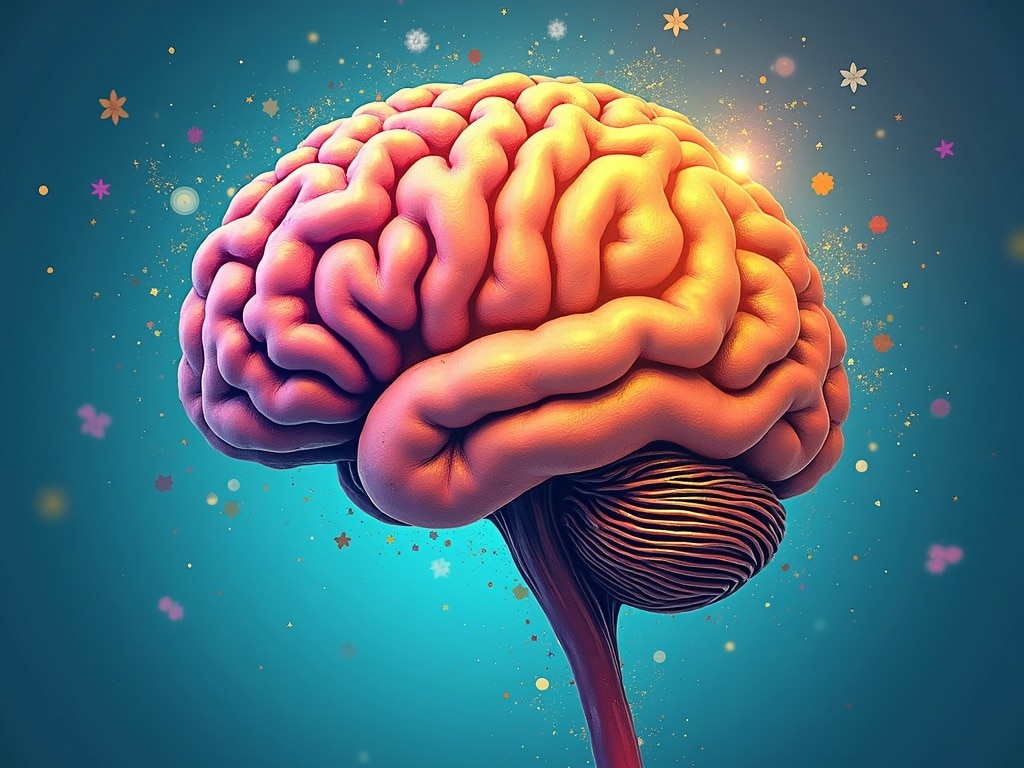Natural Ways to Improve Memory: A Comprehensive Guide
Imagine walking into a room and completely forgetting why you're there. Or struggling to recall the name of someone you've met multiple times. While occasional memory lapses are normal, consistently forgetting things can be frustrating and concerning. The good news is that there are many natural, effective strategies you can implement to boost your memory and keep your mind sharp.
The Power of Diet: Fueling Your Brain for Optimal Memory
What you eat directly impacts your brain health and memory function. A diet rich in certain nutrients and antioxidants can protect your brain cells and enhance cognitive performance.
Embrace Brain-Boosting Foods
Incorporate these memory-enhancing foods into your daily meals:
- Fatty Fish: Salmon, tuna, and mackerel are packed with omega-3 fatty acids, crucial for brain health. Omega-3s help reduce inflammation and improve blood flow to the brain.
- Berries: Blueberries, strawberries, and blackberries are brimming with antioxidants that protect brain cells from damage caused by free radicals. Studies have shown that berries can improve memory and cognitive function.
- Turmeric: This vibrant spice contains curcumin, a powerful compound with anti-inflammatory and antioxidant properties. Curcumin can help improve memory and may even protect against Alzheimer's disease.
- Leafy Greens: Spinach, kale, and collard greens are rich in vitamins, minerals, and antioxidants that support brain health. They contain folate, which is essential for cognitive function.
- Nuts and Seeds: Almonds, walnuts, and flaxseeds are excellent sources of vitamin E and omega-3 fatty acids. They can help improve memory and protect against cognitive decline.
- Eggs: Eggs are a great source of choline, a nutrient that is essential for brain function and memory. Choline helps produce acetylcholine, a neurotransmitter involved in memory and learning.
Limit Processed Foods and Sugary Drinks
Processed foods, sugary drinks, and excessive alcohol consumption can negatively impact your memory. These foods can lead to inflammation, impair blood flow to the brain, and disrupt neurotransmitter function. Opt for whole, unprocessed foods whenever possible and limit your intake of sugary drinks and alcohol.
The Importance of Exercise: Moving Your Body, Sharpening Your Mind
Regular physical activity is not only beneficial for your physical health, but it also plays a crucial role in maintaining and improving your memory. Exercise increases blood flow to the brain, stimulates the growth of new brain cells, and improves the connections between existing brain cells.
Engage in Regular Aerobic Exercise
Aim for at least 30 minutes of moderate-intensity aerobic exercise most days of the week. Activities like brisk walking, jogging, swimming, and cycling can significantly improve cognitive function and memory.
Incorporate Strength Training
Strength training exercises, such as lifting weights or using resistance bands, can also benefit your brain health. Strength training helps improve blood flow to the brain and can enhance cognitive performance.
The Power of Sleep: Restoring and Rejuvenating Your Brain
Sleep is essential for consolidating memories and restoring brain function. During sleep, your brain processes and stores information, making it easier to recall later.
Prioritize Quality Sleep
Aim for 7-8 hours of quality sleep each night. Create a relaxing bedtime routine, avoid screen time before bed, and make sure your bedroom is dark, quiet, and cool.
Address Sleep Disorders
If you have trouble sleeping or suspect you have a sleep disorder like insomnia or sleep apnea, consult a healthcare professional. Addressing sleep disorders can significantly improve your memory and cognitive function.

Mental Stimulation: Exercising Your Brain Through Engaging Activities
Just like your body, your brain needs regular exercise to stay sharp. Engaging in mentally stimulating activities can help improve memory, attention, and cognitive function.
Challenge Your Mind with Puzzles and Games
Puzzles, such as crossword puzzles, Sudoku, and jigsaw puzzles, can help improve your memory and problem-solving skills. Brain-training games, like those offered on Lumosity or Elevate, can also be effective.
Unlocking Your Mind's Potential: The Power of Natural Memory Enhancers
Learn a New Skill or Hobby
Learning a new skill, such as playing a musical instrument, learning a new language, or taking up a new hobby, can challenge your brain and improve cognitive function.
Read Regularly
Reading stimulates your brain, expands your vocabulary, and improves your comprehension skills. Choose books that interest you and make reading a regular habit.
Stress Management: Reducing Anxiety and Enhancing Memory
Chronic stress can negatively impact your memory and cognitive function. When you're stressed, your body releases cortisol, a hormone that can interfere with brain function and impair memory.
Practice Relaxation Techniques
Relaxation techniques, such as meditation, yoga, and deep breathing exercises, can help reduce stress and improve your memory.
Engage in Activities You Enjoy
Make time for activities you enjoy, such as spending time with loved ones, pursuing hobbies, or spending time in nature. Engaging in enjoyable activities can help reduce stress and improve your overall well-being.
Supplements for Memory: Exploring Natural Options
While a healthy diet and lifestyle are the cornerstones of good memory, certain supplements may provide additional support. Always consult with a healthcare professional before taking any new supplements.
Ginkgo Biloba
Ginkgo biloba is an herb that has been used for centuries to improve memory and cognitive function. It may help improve blood flow to the brain and protect against age-related cognitive decline.
Bacopa Monnieri
Bacopa monnieri is an herb that has been traditionally used in Ayurvedic medicine to improve memory and learning. It may help protect brain cells from damage and enhance cognitive function.
Phosphatidylserine
Phosphatidylserine is a phospholipid that is found in high concentrations in the brain. It plays a crucial role in cell signaling and may help improve memory and cognitive function.
Making it a Lifestyle: Consistent Habits for Long-Term Memory Improvement
Improving your memory is not a quick fix, but rather a long-term commitment to a healthy lifestyle. By incorporating these natural strategies into your daily routine, you can significantly enhance your memory and cognitive function for years to come. Remember to be patient, consistent, and celebrate your progress along the way. Your brain will thank you for it.

